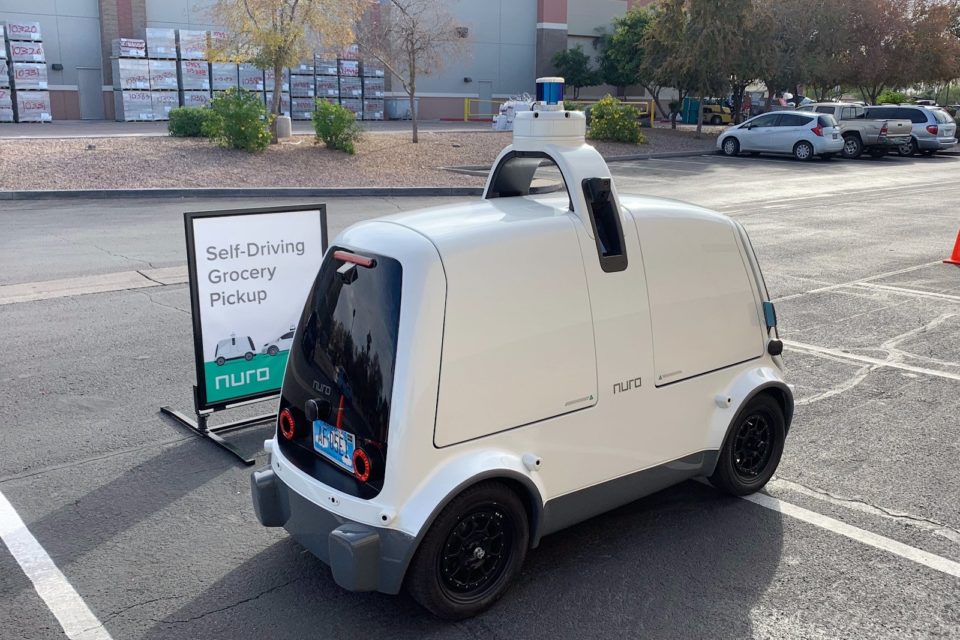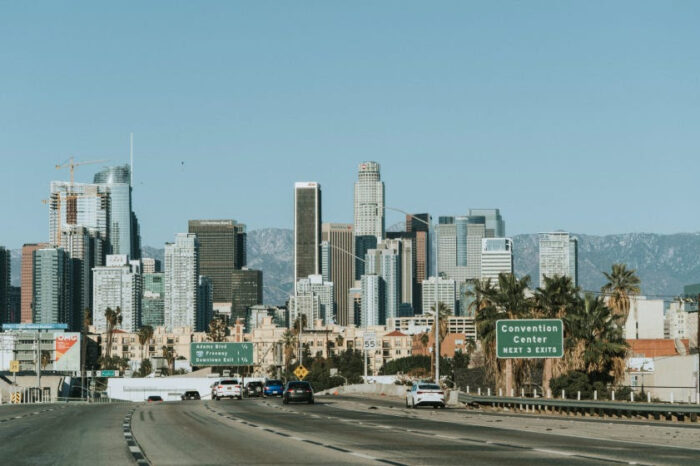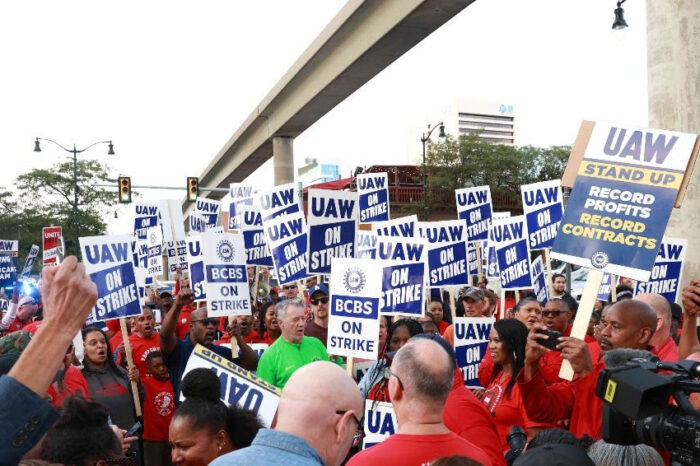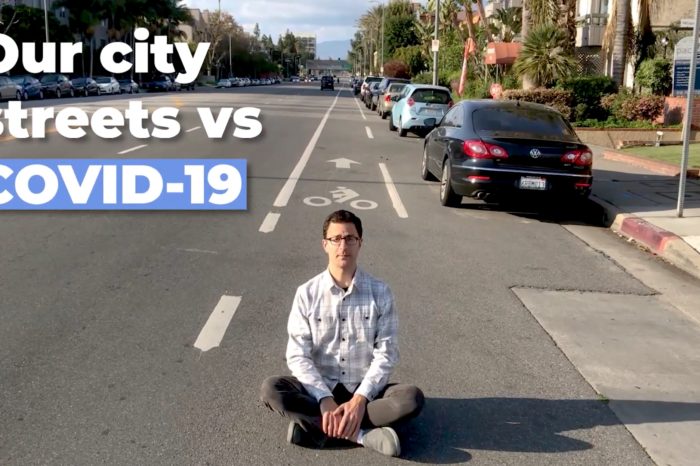While Some Step Back, Others Step Up: Autonomous Vehicles During A Time Of Pandemic

The fallout from the coronavirus pandemic has been a huge shock to mobility operators of all sorts. While public transit and micromobility companies have taken an obvious hit, as there are few people left on the street to use their services, autonomous vehicle operators have also seen a dramatic upheaval. After all, while a self-driving car may sound safe from the effects of coronavirus, a world under lockdown means there are no passengers in need of transport. And for AV companies still training their vehicles, shelter-in-place rules mean that vital backup drivers can’t take the wheel of a self-driving car in the event of an emergency.
Robo-taxis Stepping Back
Case in point, autonomous vehicle startup Zoox recently laid off its AV backup drivers, though it announced plans to bring them all back once shelter-in-place orders end. Alphabet’s Waymo also suspended all operations, including its fully driverless service, due to the risk of spreading coronavirus via shared surfaces like door handles and seat belts. Other autonomous vehicles operators like Uber, Ford’s Argo, GM’s Cruise, and Chinese startup Pony.ai are also scaling back their self-driving efforts as the world continues to go into lockdown.
AV Operators Stepping Up
While the world waits at home, there are still basic needs to be met, and consumers are increasingly turning to delivery services to meet those needs, stretching freight companies, food couriers, and package delivery firms to their limits. Sensing the opportunity, a number of AV firms continue to plow ahead on perfecting their delivery vehicles.
On the freight and trucking side, Swedish startup Einride recently demonstrated a single teleoperator controlling multiple autonomous trucks.
Meanwhile in California, while most of the self-driving vehicle operators plying the Golden State’s streets have effectively suspended all operations, Mountain View’s Nuro just received a permit to begin testing its driverless delivery vehicle on public roads. Nuro’s R2 AV isn’t set to deploy for a few more months, but the company is actively planning out operations for when the lockdown ends.
There are, however, some autonomous vehicles that are doing more than just running trials and demonstrations, they’re actively helping to fight the pandemic. In Jacksonville, Florida, NAVYA has four self-driving shuttles moving medical supplies and COVID-19 test samples from a drive-through testing site to a nearby lab. The local Mayo Clinic relies on the shuttles thanks to their minimizing of person-to-person contact. The Director of Clinical Microbiology, Jane Hata, said, “It is the perfect test bed for the vehicle in that there is an established route for transit, little ancillary traffic, and our specimens can be transported safely in a controlled environment, eliminating the risk to a driver. This method has many potential applications in the future for rapid and efficient specimen transport to our lab even as we move beyond the current situation.”
Coronavirus Ground Zero: China
On the opposite side of the globe, several Chinese AV startups are using their autonomous shuttles to make deliveries, for both medical supplies and personal home goods. Meituan’s Modai AV can go about 100 km on a single charge, carrying 100 kg of goods. So far, the grocery deliveries have been successful, helped by near-empty streets and close monitoring from officials. Customers are notified when their delivery has arrived and the vehicles are frequently disinfected.
Another Chinese startup, UDI, has been delivering produce for the past two months to 16 communities in the northeastern city of Zibo. This particular shuttle can carry an impressive 1,000 kg of cargo — that’s a whole lot of veggies! UDI not only delivers produce to hungry citizens, the company has also been operating a small fleet of vehicles that deliver boxed meals to quarantine checkpoint workers and can even spray disinfectant near hospitals.
Taking to the Skies
Self-driving cars aren’t the only autonomous option for contactless delivery: drone delivery could provide a significant advantage over land-based vehicles for many coronavirus-related applications. Zipline is a California-based drone delivery startup that’s been running a pilot program in Rwanda and Ghana. The drones are part of a medical supply delivery network that helps get blood products and medication to those who need it, bridging distances and terrains that a ground-based vehicle would struggle with. Zipline is working to bring the service to the United States, closely working with the FAA to launch a pilot program in North Carolina this fall.
In Moneygall, Ireland, a new drone delivery service from Manna Aero is about to launch. The company has signed a deal with an unnamed pharmaceutical company to quickly deliver food and medicine to the town’s self-isolating, at-risk population. The drone can carry 9 pounds of goods at up to 50 mph, and will only be working within a four mile radius, which allows it to fly up to 100 trips per day. The free service will be able to drop off packages near people’s homes, all without landing.
Stateside, Alphabet’s drone delivery company Wing has seen an uptick in its volume of deliveries for its pilot program in Virginia. At launch, customers could only get products from Walgreens, a local retailer, or FedEx deliveries. Now, the service has expanded to include pastries from a cafe, and coffee beans and cold brew from a coffee shop — helping eliminate the temptation to venture out in search of your morning fix. In addition, in response to coronavirus, Wing’s pharmaceutical offerings have been expanded. Seeing as the fixed-wing drones don’t rely on any human-to-human contact, the technology is highly beneficial for those practicing social distancing.
New Modes of Mobility for a New Way of Life
When the world returns to normal, these new technologies will be on hand to help people across the world pick up life where they left off. And even more critically, the next time there’s a global disaster, or even just a local one, autonomous solutions will be ready to make recovery all the quicker.
Want to learn more about how Coronavirus is affecting the world around us, and how smart mobility operators are responding? Register for our upcoming webinar “How Public Transit Bounces Back” — taking place Apr 14, 2020 at 12:00 PM ET.
Header image courtesy Nuro






